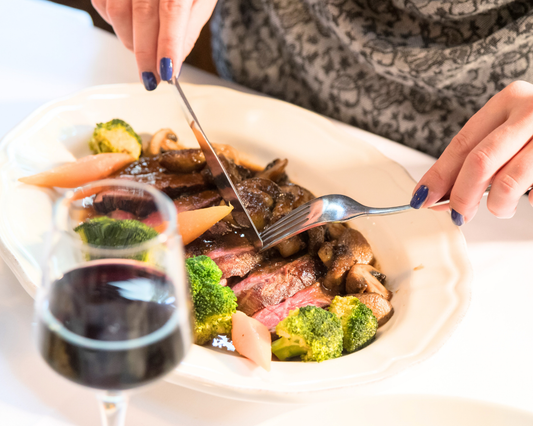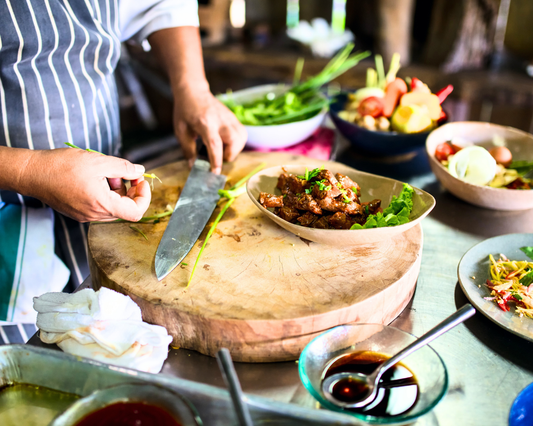In the world of nutrition, few topics spark more debate than whether meat belongs in a healthy diet. Yet many holistic health professionals in Canada agree: when chosen consciously and sourced responsibly, meat can be a powerful part of balanced living. Rather than viewing food in black-and-white terms, holistic nutrition focuses on energy, quality, and nourishment.
The Holistic Perspective: Meats as Energy
Holistic professionals see food as information for the body—fuel that shapes everything from hormones to mood. According to holistic nutritionist Jill Clapperton, “Our bodies thrive on nutrient-dense foods. When meat is raised naturally—grass-fed, pasture-raised, or free-run—it delivers a rich source of bioavailable nutrients that plants alone can’t always provide.”
This view encourages balance: integrating both plant and animal foods to create sustainable wellness.
Nutrient Density: Why Meat Matters
Properly sourced meats are some of the most nutrient-dense foods available. Holistic dietitians often highlight these key benefits:
-
Complete Protein: Meat provides all nine essential amino acids for muscle repair, hormones, and enzymes.
-
Iron: Animal-based iron (heme iron) is absorbed more efficiently than plant iron.
-
Vitamin B12: Found only in animal foods, B12 supports nerve and brain health.
-
Zinc and Selenium: Boost immunity and hormone balance.
-
Omega-3 Fatty Acids: Especially abundant in grass-fed meats, these fats fight inflammation and support cardiovascular function.
Holistic nutrition coach Tanya Mott notes, “People who cut meat often experience low energy and nutrient deficiencies. Bringing back moderate portions of high-quality meat restores balance.”
Quality Over Quantity: Sourcing Ethically
Holistic health emphasizes food quality over quantity. Not all meats are equal—industrial farming practices can lead to higher stress hormones, antibiotics, and lower nutrient content.
Grass-fed and finished beef, for instance, contains more omega-3s and antioxidants than conventional beef. Similarly, pasture-raised poultry and pork have healthier fat profiles and deeper flavour.
Trusted Canadian suppliers offering grass-fed beef, pasture-raised pork, and cage-free chicken from farms that prioritize animal welfare and sustainability. As holistic nutritionist Sarah Knight explains, “When you eat meat raised in harmony with nature, you’re consuming cleaner, more vibrant energy.”
Traditional Wisdom and Modern Balance
Across cultures, traditional diets have always included meat—from the Mediterranean’s lean lamb to Indigenous diets rich in wild game. Holistic medicine respects these ancestral eating patterns, focusing on foods close to nature.
For holistic practitioners, how you eat is as important as what you eat. Eating slowly, with gratitude and awareness of where your food comes from, enhances digestion and fosters a sense of connection and wellbeing.
Balancing Meat with Plants
Holistic diets promote moderation. A balanced plate typically includes:
-
A quality protein (grass-fed beef, cage-free chicken, or wild fish)
-
Colourful vegetables for fibre and antioxidants
-
Healthy fats like olive oil or avocado
-
Complex carbs from grains or root vegetables
Supporting Digestion Naturally
To improve digestion:
-
Eat slowly and chew well.
-
Use digestive aids like ginger or apple cider vinegar.
-
Add fermented foods such as kimchi or sauerkraut.
-
Avoid heavily processed or overcooked meats.
Supporting natural digestion allows your body to fully absorb the nutrients meat provides.
Ethical and Environmental Awareness
Holistic wellness extends to caring for the planet. Many holistic professionals promote ethical omnivorism—eating meat from farms that practise regenerative agriculture and humane animal care. Grass-fed and pasture-raised systems can help restore soil, protect biodiversity, and lower carbon output.
As educator Ryan Meikle says, “It’s not about eating meat or not—it’s about reconnecting with your food system. Conscious choices heal both body and Earth.”
Making Conscious Choices
Including meat holistically means tuning into your body’s needs and your values:
-
Choose grass-fed and finished beef or cage-free chicken from local farms.
-
Support Canadian producers and sustainable food delivery services like Farm2Fork.
-
Eat mindfully and appreciate each meal.
-
Balance meat with plants, grains, and good fats.
-
Listen to your body—eat intuitively, not out of habit.











